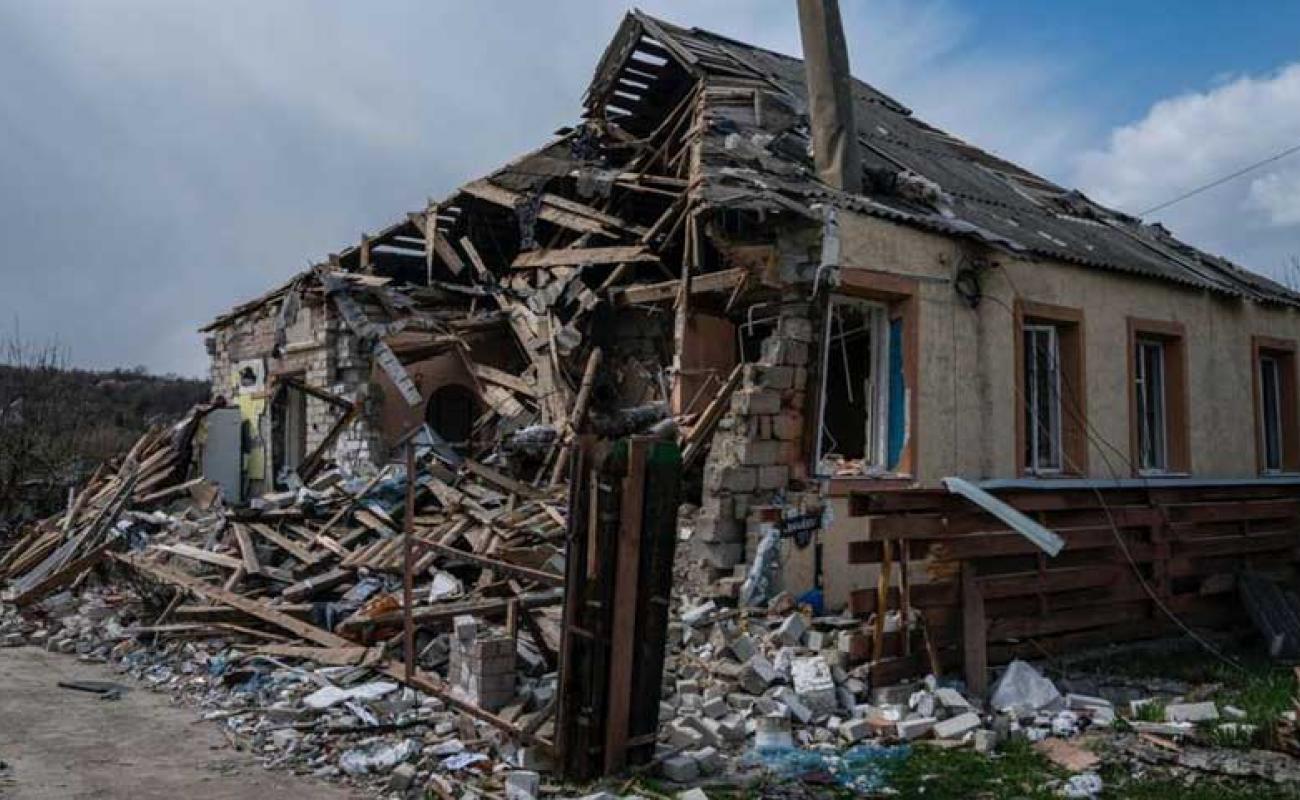Humanitarian Crisis due to Russia-Ukraine War

A severe humanitarian catastrophe has resulted from the conflict between Russia and Ukraine, which has caused extensive displacement and interruptions to vital services. As a result of the fighting, thousands of people are dealing with the fallout, including scarcities in food, water, and medicine. The severe difficulties faced by humanitarian organizations in transporting aid to impacted areas highlight the critical need for swift global cooperation to meet the immediate needs of the affected people. The circumstance underscores the importance of diplomatic endeavors in reducing human suffering and the far-reaching effects of geopolitical events on everyday life.
A major humanitarian catastrophe has been brought about as a result of the continuing war in Ukraine, which has prompted enormous worries on a worldwide scale. The United Nations estimates that over 13 million people in Ukraine have been forced to leave their homes as a result of the destruction caused by the conflict. Of them, approximately 5 million have become refugees, and 7 million have been forced to leave their houses. Particularly noteworthy is the fact that two-thirds of Ukraine’s children have emigrated, making this case the most significant departure caused by violence since the Balkan Wars in the 1990s.
The impact is felt beyond the borders of Ukraine, as hundreds of thousands of people are seeking refuge in neighboring countries such as Hungary, Moldova, and Poland. These countries are becoming increasingly stressed as they attempt to accommodate the influx of displaced people due to the conflict. The attempts to provide assistance and placement for these refugees are made much more difficult by the economic difficulties resulting from the aftermath of the COVID-19 epidemic.
The humanitarian consequences of the Russia-Ukraine conflict are multifaceted and extend beyond the immediate regions, impacting global food security and energy markets. As a substantial wheat exporter, Ukraine is crucial in the worldwide food supply chain. The disruptions in wheat production due to the conflict have triggered shortages worldwide. This scarcity has affected the availability of wheat-based products and led to a broader ripple effect on food prices globally.
Since Ukraine’s agricultural production is a significant player in the global market, the reduced wheat supply is directly responsible for increased food prices. Due to wheat shortages, the cost of bread, pasta, and other essential items has soared. Worldwide, this affects consumers, but it will have the most significant impact in areas that rely primarily on wheat imports.
Furthermore, the international oil market has Russia and Ukraine as critical participants. Energy prices in the global arena have risen due in part to the fighting and the sanctions that followed on Russian oil. The sanctions have caused oil scarcity worldwide by preventing Russia’s oil from flowing normally. Because of this, energy shortages have worsened, leading to a spike in global prices and affecting many industries.
Food price increases and oil price hikes have made global economic conditions difficult. Inflation strains people’s and companies’ budgets, increasing the difficulty of meeting basic living needs and worsening financial hardships, particularly during the COVID-19 epidemic. The international community must work together to resolve the immediate humanitarian crises and the broader economic consequences of the conflict between Russia and Ukraine, as these interrelated factors highlight the broader influence of regional conflicts on the stability of global systems.
Some say that heavily populated areas have been the targets of Russian attacks, leading people to seek refuge in subway stations. On top of that, several areas lack access to necessities, including food, electricity, and water. If nothing changes, experts are worried that there might be a high human casualty rate and significant damage to infrastructure. Russian forces have used heavy artillery, causing damage to cities such as Chernihiv, Mariupol, and Kharkiv. The latest estimates put the death toll at 10,582, with 19,875 seriously injured; however, due to underreporting, the actual number of casualties is likely higher.
The humanitarian concerns that have arisen due to this war are widespread. In Ukraine, a significant wheat exporter, there have been interruptions in wheat production, which has led to shortages of wheat all over the globe and, as a result, a rise in the cost of food. Furthermore, Russia and Ukraine are major oil producers, and the sanctions imposed on Russian oil as a result of the conflict have contributed to an increase in the price of oil worldwide, which has exacerbated energy shortages and led to widespread inflation.
The repercussions are pretty far-reaching since they not only impact the directly engaged areas but also create difficulties for the markets for energy and food safety worldwide. It is of the utmost need to make immediate efforts toward international diplomacy and arbitration to end the conflict, address the underlying causes, and relieve the rising humanitarian situation that has the potential to become much more severe over time.
The overshadowing of the Russia-Ukraine conflict by other geopolitical issues, such as the Israel-Palestine conflict, could exacerbate the humanitarian crisis in Ukraine. If global attention wanes, there is a risk of reduced international aid and support for the affected civilians. This potential lack of focus might lead to diplomatic stagnation, hindering efforts to bring about a peaceful resolution and prolonging the suffering of civilians. The de-prioritization of the Russia-Ukraine conflict may embolden involved parties to escalate violence, with diminished international pressure for a peaceful solution. Economic ramifications, including disrupted wheat exports and rising oil prices, may worsen if the conflict is overshadowed, impacting not only the directly affected regions but contributing to global economic instability. Moreover, the overshadowing could compound regional tensions, fostering increased resentment and frustration among the affected population potentially fueling further unrest and instability. Recognizing the interconnectedness of global conflicts is crucial for maintaining sustained international attention to address their multifaceted consequences.
